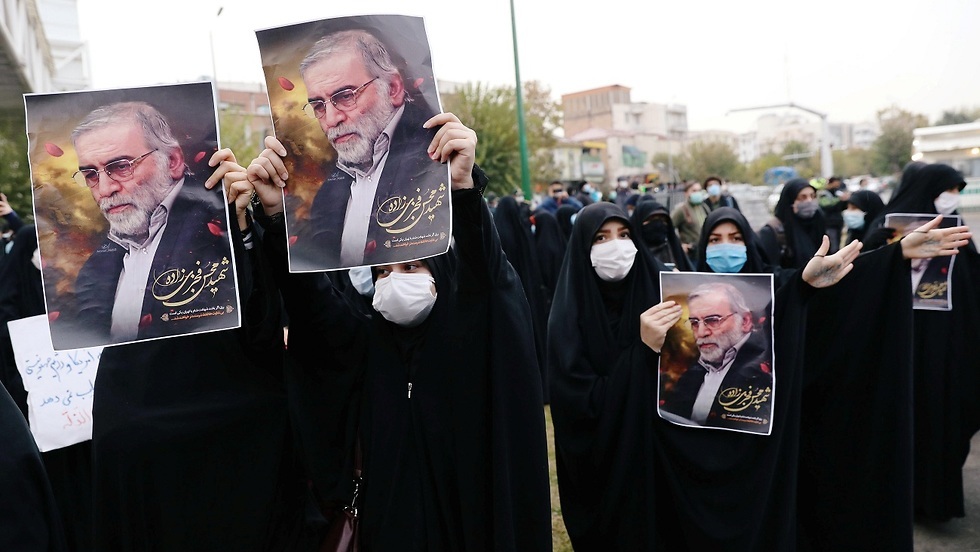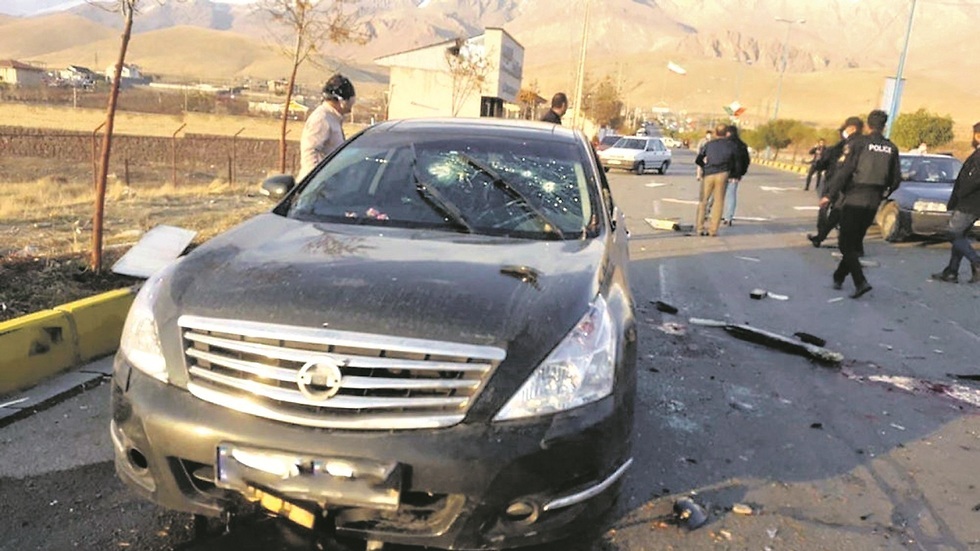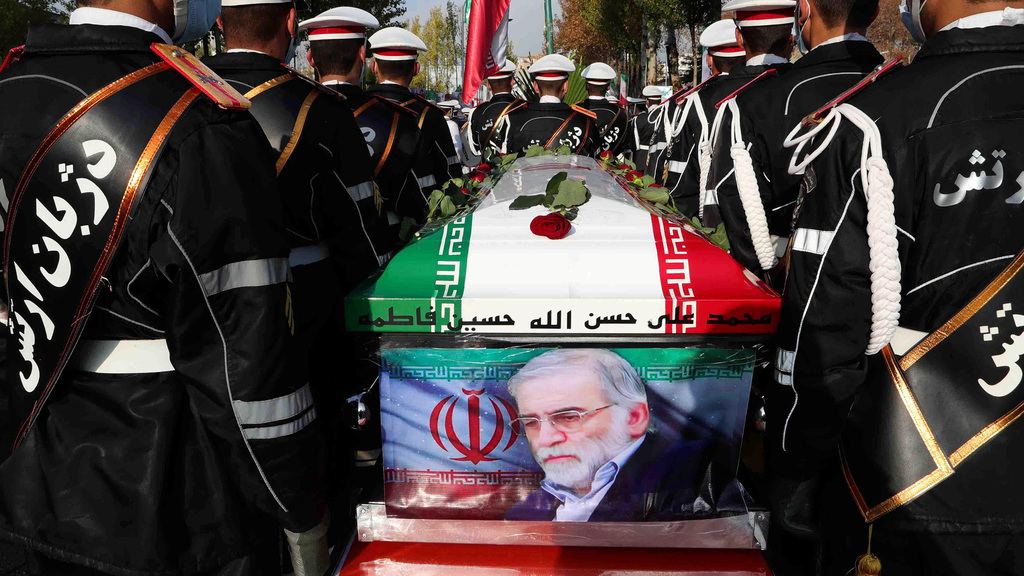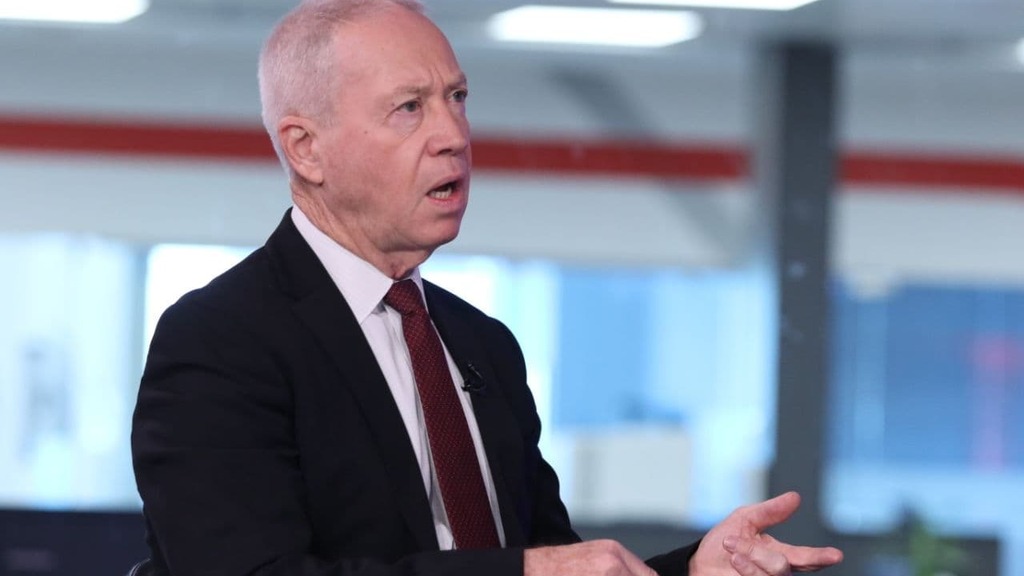The killing of Iran's top nuclear scientist last month was carried out remotely with artificial intelligence and a machine gun equipped with a "satellite-controlled smart system", Tasnim news agency quoted a senior commander as saying.
Iran has blamed Israel for the assassination of Mohsen Fakhrizadeh, who was seen by Western intelligence services as the mastermind of a covert Iranian programme to develop nuclear weapons capability. Tehran has long denied any such ambition.
Israel has neither confirmed nor denied responsibility for the killing, and one of its officials suggested that the Tasnim report of the tactics used was a face-saving gambit by Iran.
In the past, however, Israel has acknowledged pursuing covert, intelligence-gathering operations against the nuclear programme of its arch-enemy.
The Islamic Republic has given contradictory details of Fakhrizadeh's death in a daytime Nov. 27 ambush on his car on a highway near Tehran.
"No terrorists were present on the ground... Martyr Fakhrizadeh was driving when a weapon, using an advanced camera, zoomed in on him," Tasnim, a semi-official agency, quoted Ali Fadavi, the deputy commander of Iran's Revolutionary Guards, as saying in a ceremony on Sunday.
"The machine gun was placed on a pick-up truck and was controlled by a satellite."
SECURITY GAPS
Fadavi spoke after Iranian authorities said they had found "clues about the assassins", though they have yet to announce any arrests. Shortly after Fakhrizadeh was killed, witnesses told state television that a truck had exploded before a group of gunmen opened fire on his car.
Last week Ali Shamkhani, Secretary of the Supreme National Security Council of Iran, said the killing was carried out with "electronic devices" with no people on the ground.
Experts and officials said last week Fakhrizadeh's killing exposed security gaps that suggest its security forces may have been infiltrated and that the Islamic Republic was vulnerable to further attacks.
"Some 13 shots were fired at martyr Fakhrizadeh with a machine gun controlled by satellite... During the operation artificial intelligence and face recognition were used," Fadavi said. "His wife, sitting 25 centimetres away from him in the same car, was not injured."
Education Minister Yoav Galant, a security cabinet member, said he was "not aware" of whether the remote-operated targeting technologies described in the Iranian accounts existed.
"What I see is a great deal of embarassment on the Iranian side," Galant, a former naval commando and deputy chief of Israel's military, told Army Radio. "It would appear that those who were responsible for his (Fakhrizadeh's) security are now coming up with reasons for not having fulfilled that mission."
Fakhrizadeh, identified by Israel as a prime player in what it says is a continuing Iranian quest for a nuclear weapon, was the fifth Iranian nuclear scientist killed in targeted attacks since 2010 inside Iran, and the second slaying of a high-ranking Iranian official in 2020.
The commander of the Revolutionary Guards' elite Quds Force, Qassem Soleimani, was killed in a U.S. drone strike in Iraq in January. Tehran retaliated by firing missiles at U.S. military targets in Iraq.





